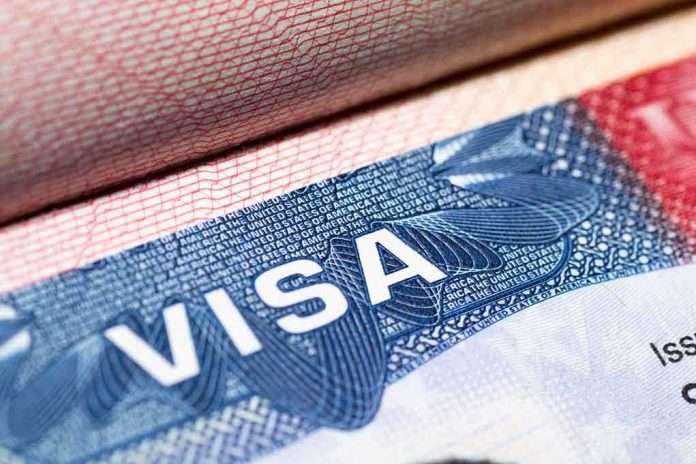
When a Colombian president dares to challenge the directives of a sitting US president, the diplomatic fallout is nothing short of seismic.
Story Overview
- US revokes Colombian President Gustavo Petro’s visa after his inflammatory remarks.
- Petro calls for US soldiers to disobey orders regarding the Gaza conflict.
- This unprecedented diplomatic move could strain US-Colombia relations further.
- The incident highlights the complexities of international diplomacy and military allegiance.
Diplomatic Fallout: A First in US-Colombia Relations
The United States has revoked the visa of Colombian President Gustavo Petro following his controversial remarks in New York. Petro urged US soldiers to disobey President Donald Trump’s orders concerning the conflict in Gaza, sparking an unprecedented diplomatic incident. This marks the first time a sitting Colombian president has faced such a punitive measure from the US, a country with which Colombia has shared a historically strong alliance.
Gustavo Petro’s comments were made during a pro-Palestinian demonstration outside the United Nations headquarters. His call for US military personnel to “obey the order of humanity” over Trump’s directives has been seen as a direct challenge to US military discipline and command. The response from Washington was swift, with the revocation of Petro’s visa announced just a day after his remarks.
The Strained Ties: Historical Context and Recent Tensions
Colombia and the US have long maintained a close partnership, particularly focused on security and counter-narcotics cooperation. This relationship dates back to the Korean War, but recent years have seen growing tensions. Under Petro’s presidency, these tensions have escalated, beginning with his temporary suspension of deportation flights from the US and a recent decertification of Colombia’s role in the war on drugs by the US.
The incident with Petro’s visa revocation adds to the growing list of diplomatic strains. Experts argue that Petro’s actions might be an attempt to bolster his domestic and international standing among left-wing supporters, positioning himself as a vocal critic of US policy. However, this move could have serious repercussions for the Colombia-US alliance.
US to Revoke Colombian President's Visa After He Encouraged Soldiers to Incite Violence https://t.co/hk2JQenb1Y
— 💜Naddez💜 (@Naddez1) September 29, 2025
Implications for Colombia and the Broader Region
The immediate consequence is a diplomatic freeze between the two nations. With Petro now back in Bogotá, he has escalated his rhetoric against the US via social media, accusing Washington of violating international law. This public spat could potentially lead to further sanctions or aid reductions from the US, significantly impacting Colombia’s economy and military cooperation.
Domestically, Petro’s actions have polarized opinions. While his supporters applaud his stance, critics argue that he risks undermining Colombia’s national interests and security. The broader impact on Latin America could be significant, potentially reshaping regional dynamics and US influence, especially among other left-leaning governments.
Expert Analysis: Uncharted Waters for US-Colombia Relations
Industry experts have highlighted the unprecedented nature of the US response. Some analysts warn that this incident could inflict long-term damage on the historically strong ties between the two countries. Petro’s actions are seen by some as a calculated risk to solidify his reputation as a global advocate for Palestinian rights and a critic of US military actions.
Academics debate whether Petro’s speech constitutes legitimate political expression or a dangerous incitement to insubordination. The historical importance of US-Colombia ties is underscored by the potential consequences of their unraveling. As the situation develops, the world watches closely to see how these diplomatic tensions will unfold and what repercussions they may have on regional and global alliances.
Sources:
‘I don’t care’: Colombia president Petro hits back after US revokes his visa



